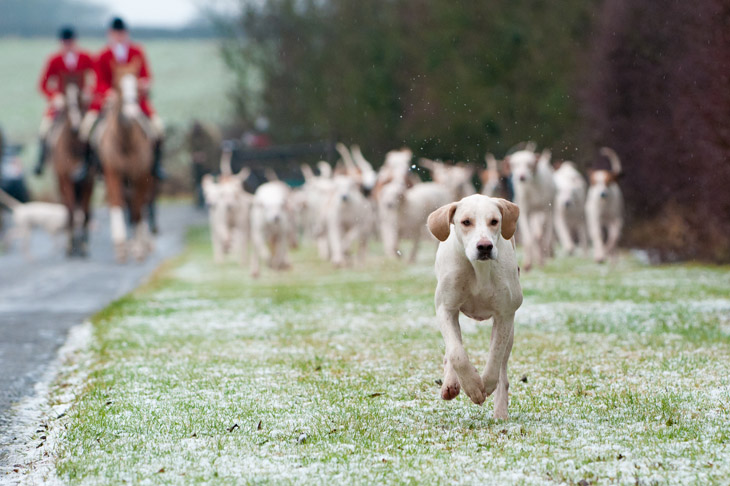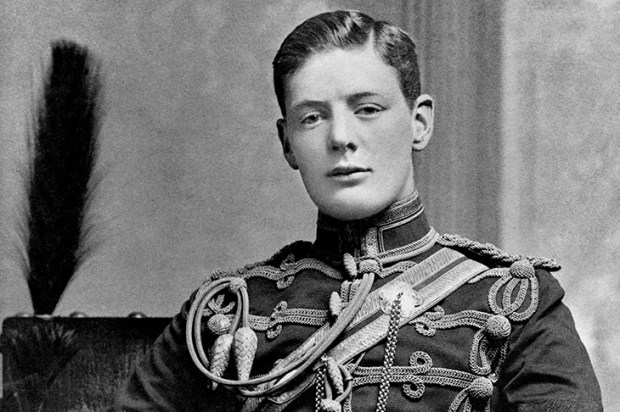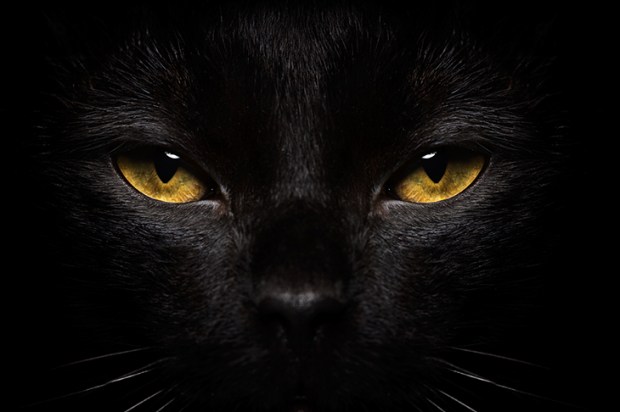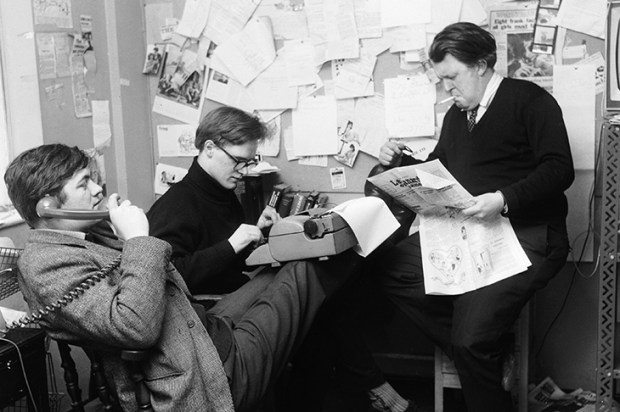Though I don’t think much of Theresa May’s paternalistic soft-left politics, I do like her no-nonsense style. That Q&A she did for the Sunday Times where she was asked ‘Sherlock or Midsomer Murders?’ — ‘I’ve watched both’ she replied — was hilarious in its Olympian imperviousness to the convention, established by Tony Blair, that prime ministers must kowtow at all times to popular culture and sentiment.
So too was the extraordinarily unevasive answer she gave when asked recently why she was committed to allowing Conservative MPs a free vote on rescinding Tony Blair’s fox-hunting ban. ‘As it happens, personally, I’ve always been in favour of fox hunting,’ she said.
Me too. But when you’re a mainstream politician — not a maverick backbencher like, say, the brave, lovely and wonderful Kate Hoey — you’re not really supposed to say these things. I don’t recall David Cameron ever being so upfront — and unlike his successor, he has actually inhaled to hounds. So full marks to Mrs May for her almost Trumplike forthrightness and unpredictability.
What I wasn’t so sure about, at least initially, were her tactics. I can’t be the only hunting enthusiast who listened to her words and thought: ‘Shh, Theresa! Don’t remind them we’re still here.’ Obviously none of us wanted the ban. Hunting is unquestionably the noblest sport ever invented, the finest thing any human being (or horse or hound — or fox) can do, and without it Britain would be finished. But in the 13 years since the ban was introduced by Blair — largely as a sop to Labour’s insatiable bloodlust for anything scenting of class superiority — we’ve mostly managed to circumvent it in one way or another by ‘hunting within the law’.
That’s the phrase the huntsman always uses in the (carefully videoed) statement before you all set off from the meet. The hounds are following a pre-laid trail, not cute, lovable foxes, and if, heaven forfend, the pack should stray off course and inadvertently find Charlie instead, well of course you can’t avoid the occasional accident. Which is why — belt and braces — quite a few hunts bring an eagle or an owl with them, to exploit the exemption in the law which allows hounds to flush foxes towards birds of prey. You can’t be too careful, can you?
In the days when my family still allowed me to hunt — a ban which, à la Theresa, I am working to rescind — I used to love joining so many people of all ages and from all walks of life (six-year-olds on ponies; old battle-axes on cobs; nurses; farmers; high-court judges) conspiring to very nearly break what we all knew was an unjust and (-happily) mostly unenforceable law. Hunting is the closest thing I’ve ever experienced in later life to the camaraderie, highs and illicit thrills of early 1990s warehouse rave culture.
But the point about hunting which we fairweather followers are inclined to forget amid the adrenalin and sloe-gin merriment is that it’s not about us. We’re just spectators. The real business of hunting is what the staff do: the huntsman, the whipper-in, the kennel and stable staff. These are the incredibly hard-working, woefully poorly paid, tremendously skilled country folk whose job it is to maintain and hunt the hounds, and keep alive traditions and standards going back centuries.
If they were some remote indigenous tribe practising their craft in the Amazon basin, they would long since have been given globally protected status. Survival International would campaign for them; documentaries about them would win awards at Sundance, presented by fawning celebrities; anthropologists would come to marvel at their marvellous bond with their hounds, to record for posterity their antique cries and mysterious horn calls, and sing the praises of a community spirit and a kinship with the natural world almost entirely absent from our own deracinated culture.
But because it’s on our doorstep we’ve taken it for granted. Worse than that, thanks to the vindictive ban — which even Blair himself subsequently regretted — we’ve sought to make criminals of these honest, decent, law-abiding people. If you work for a hunt you live in a continual state of gnawing anxiety, trying to do the job you’re paid to do as professionally as you can, never knowing whether this will be the day that unseen eyes may catch you straying over the line, depriving you of your savings, your freedom and your livelihood.
Hunt staff are right to be paranoid because ‘they’ really are out to get them: the masked hardcore of thugs, some wielding iron bars, and their posse of paid student protestors; the activists with their video cameras, trying to secure a prosecution; the deep-cover surveillance, filming from a distance through long-lens cameras.
And though most of the recent court cases brought by the RSPCA have been spectacularly unsuccessful — not helped by their use of tainted expert witnesses — the misery of a prosecution can drag on for years. One huntsman had to work two whole seasons before his case came to trial. He was acquitted — but at what mental cost?
Before I moved to the country, I was pro-hunting for many reasons: the thrills, the 18th-century kit, the pageantry; the fact that it wound up so many of the people I loathe the wrong way. Now I live in the heart of it I’ve come to appreciate that rural Britain is not there to provide boutique entertainment to wealthy weekenders and gawping day-trippers and retired townies: it’s a place where a tight-knit community of real people — such as those dedicated hunt staff — live and do real jobs of real value that few outsiders are equipped to understand.
Our Prime Minister is wrong about a lot of things, but she’s dead right about hunting.
Got something to add? Join the discussion and comment below.
Get 10 issues for just $10
Subscribe to The Spectator Australia today for the next 10 magazine issues, plus full online access, for just $10.
You might disagree with half of it, but you’ll enjoy reading all of it. Try your first month for free, then just $2 a week for the remainder of your first year.















Comments
Don't miss out
Join the conversation with other Spectator Australia readers. Subscribe to leave a comment.
SUBSCRIBEAlready a subscriber? Log in